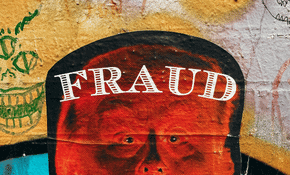Terrorism and the financing of terrorist activities continue to pose significant challenges worldwide. The consequences of failing to prevent terrorist financing are immense, underscoring the urgency to address this issue. Terrorist financing involves providing the necessary funds for carrying out terrorist acts, often accomplished through donations, money laundering, and drug trafficking. Countering terrorist financing is imperative to put an end to the menace of terrorism. Financial institutions play a crucial role in curbing terrorist funding, and companies must take proactive measures to protect themselves from this heinous crime.
The Historical Context of Countering the Financing of Terrorism
For over a decade, tackling terrorism financing has been a daunting task for authorities across the globe. The turning point came after the tragic events of the September 11 terrorist attacks in the United States of America. In response, various laws and regulations were implemented to address terrorist financing, collectively known as the Counter-Terrorist Financing Policy (CFT).
International frameworks have been established to hold nations accountable for combatting terrorist financing. As the terrorist threat has intensified in recent years, the UN Security Council has emphasized the suppression of funding through organized crime groups and kidnapping for ransom.
Understanding the Link Between Terrorism Financing and Money Laundering
Despite the widespread concern about terrorist financing, many individuals remain unsure about its intricacies and operation. It is closely linked to money laundering and operates on a global scale. Numerous studies have demonstrated a direct correlation between organized crime and terrorist financing, making it imperative to address both issues comprehensively.
Real-Life Examples of CFT
The United States' Post-9/11 Response: After the terrorist attacks on September 11, 2001, the United States implemented the USA PATRIOT Act (Uniting and Strengthening America by Providing Appropriate Tools Required to Intercept and Obstruct Terrorism Act). This legislation aimed to bolster efforts to prevent terrorist financing by granting broader surveillance powers to law enforcement agencies, increasing financial institution reporting requirements, and enhancing international cooperation in tracking and freezing terrorist assets.
Financial Action Task Force (FATF): The FATF is an intergovernmental organization established to combat money laundering and terrorist financing globally. It sets international standards and provides guidance to countries on implementing effective anti-money laundering and counter-terrorist financing measures. By coordinating efforts among member countries, the FATF plays a significant role in curbing terrorist funding.
Terrorist Financing in Conflict Zones: In areas plagued by armed conflicts and extremist activities, terrorist groups often generate funds through various means. For instance, the Islamic State (ISIS) in Syria and Iraq generated substantial revenue from oil smuggling, looting of banks, extortion, and kidnapping for ransom. Efforts to counter these financing methods involved targeting their sources of revenue, cutting off external funding channels, and tracking financial transactions.
Charities and NGOs as Fronts for Terrorist Financing: Some terrorist groups misuse charitable organizations and non-governmental organizations (NGOs) as fronts to disguise their illegal activities and facilitate the flow of funds. Authorities have uncovered cases where funds meant for humanitarian aid were diverted to support terrorist activities. To counter this, countries have intensified scrutiny on charitable organizations and implemented stricter regulations to ensure transparency and accountability.
Financial Institution Vigilance: Banks and financial institutions play a critical role in preventing terrorist financing. In various instances, they have reported suspicious transactions and flagged potential financing activities. This vigilance has helped authorities identify and disrupt terrorist financing networks.
Cryptocurrencies and Terrorist Financing: The emergence of cryptocurrencies has posed new challenges in tracking and preventing terrorist financing. Some terrorist groups have experimented with cryptocurrencies as a means to move funds across borders discreetly. Law enforcement agencies and financial institutions are adapting their approaches to monitor and counter these evolving methods.
Sanctions and Asset Freezing: Governments and international organizations impose sanctions on countries or individuals suspected of supporting terrorism. These measures freeze their assets, making it difficult for them to move funds and engage in financial transactions that could finance terrorist activities.
Steps Taken to Prevent Terrorist Financing
Financial institutions play a pivotal role in the fight against terrorist financing. They are now required to constantly monitor their customers' activities and gather comprehensive information about their accounts. This proactive approach ensures that customers are not involved in financial crimes, including money laundering, thus safeguarding the integrity of the financial system.
Countering the financing of terrorism remains an ongoing and critical global endeavor. The repercussions of terrorist acts are far-reaching, making the prevention of terrorist financing of utmost importance. Through international cooperation, stringent regulations, and the dedication of financial institutions, the world can work towards eradicating this scourge and creating a safer and more secure future for all. As individuals and societies, it is our collective responsibility to unite against terrorism and its funding, safeguarding global peace and stability.








